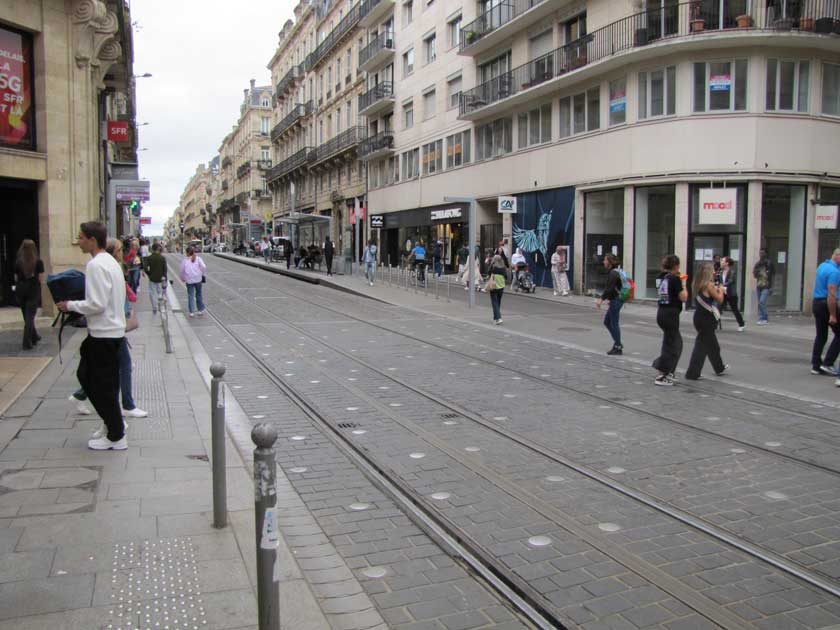LETTERS TO THE EDITOR: Fury over CBC cuts; tramway pause not all bad
Dear Editor:
I am furious upon hearing that the government will cut some 600 jobs at CBC and Radio-Canada, the two radio and television networks whose mandate is to provide Canadians with accurate news throughout the country and sustain the national identity and culture.
It transpires that most English Canadians shun CBC television and to some extent its radio. CBC receives only six per cent of listeners and about two-thirds of the $1.2 billion annual budget (the rest of the subsidy for public communication goes to Radio-Canada). The preference is to tune in to Global TV or more likely American networks and the prominent social network giants.
Radio-Canada is watched or listened to by 29 per cent of all watchers/listeners in French. It shows a revenue from advertising of $149.1 million, compared to CBC at $139.5 million. The other French-speaking networks account for the remaining listeners. Most of them also privilege Canadian content.
Catherine Tait, the president of CBC/Radio-Canada, will cut half of the jobs at CBC and half at Radio-Canada. CBC receives the greater part of subsidies but is less effective than Radio-Canada. Tait’s decisions are very questionable and I believe she is likely overstaying her mandate as the head of the organization.
Radio-Canada, despite compressions, is doing its job for the benefit of French-speaking Canadians in all the provinces and is evidently the more creative and profitable of the two networks.
Britain, France, Switzerland and other advanced countries have national broadcasters that are both efficient and popular and are of significant cultural and social importance. They bind the citizens to the whole. The yearly cost per person in Canada of our national network is reported by Radio-Canada as $33, whereas the average per-citizen cost of such public networks in other countries averages $88, with “Aunty” (BBC) costing each citizen $105 and the Swiss network almost $180 per person.
A physically vast country like Canada with many isolated regions needs – even more so than the aforementioned compact nations – a national broadcaster that is a close part of the everyday lives of its citizens, to maintain our identity, coherence, culture and democracy. Clearly, the transition to parallel vehicles of communication by CBC-Radio Canada will need increased strategy and funding.
How do we bring many Canadians to CBC who are more connected to a neighbouring country and other culture, and who mostly shun Canadian talent and character?
Maybe the image of CBC needs renewed charisma. Do we need a new Peter Mansbridge or a new role for educationists to make a change?
As a Quebecer, I am proud of my regional identity. However, I sense that Canada is more a sentiment of place here than it is in the rest of a country that prefers foreign cultures to its own.
A paradox?
Arthur James Plumpton*
Île D’Orléans
*The writer is a one-time student public radio producer and a longtime listener and admirer of CBC and Radio-Canada.
Dear Editor,
Further to “Could tramway pause be beneficial?” (Nov. 22 and Dec. 5) : The tram platform has many disadvantages. By limiting the travel way for vehicles to one lane in each direction and by not allowing vehicles to cross the platform in case of need, the platform causes a host of problems with respect to access of neighbouring land uses – garbage removal, deliveries, moving vans, para-transit (STAC) and taxi service, street cleaning and so on,. as well as creating difficulties for police, ambulance and fire department access. One can see in the accompanying photo (from Bordeaux, France) that a tram line does not require a platform.
Questions have been raised, without obtaining a satisfactory public answer:
At the Cartier station, the project office provided an ambiguous picture of its proposal that did not make clear that Boul. René-Lévesque would become a one-way shared street eastbound. Furthermore, the office placed a delivery truck in the corridor reserved for people with reduced mobility, and placed a station dock so as to block the access to a pharmacy. Would it be possible to analyze an option where trams and other vehicles share the space at different times – such as is proposed for the area between the cemeteries near Ave. Myrand – and the Cartier westbound dock is moved east of Ave. de Salaberry?
The bus stop near the La Champenoise seniors’ residence will disappear, to be replaced by a station at Maguire Avenue. There are a large number of senior citizens at this residence for whom it will be practically impossible to travel.
The tram project also includes the creation of a new road link along Rue Mendel. This aspect has never been justified in terms of transit service.
Paul Mackey*
Quebec City
*The writer is an urban mobility consultant and former city councillor.

